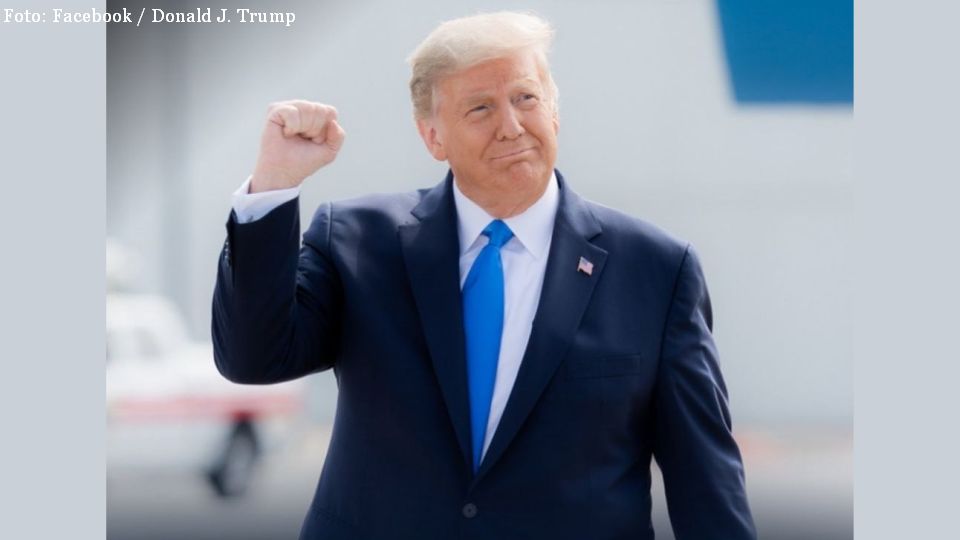A New Term in the White House
“Trump says America First, Make America Great Again, even if that means additional costs for allies"

Corina Cristea, 24.01.2025, 11:42
The return of Republican Donald Trump to the White House for a second term has been eagerly awaited to bring clarifications on future American policy in cases with high geostrategic stakes. A policy that seems focused exclusively on national interests, under the slogan “Let’s make America great again”, as emerged from the very beginning of the speech given after the inauguration. In line with this orientation, Donald Trump has already signed several executive orders and directives. In addition to promises to combat inflation, he says that the country’s official policy will accept only two genders – male and female – and has resumed promises that the country’s security will take first place. He has restricted immigration of any kind, declared a state of emergency at the border with Mexico, also suppressing the right to asylum, and the right to automatically obtain citizenship for those born in the US to parents with illegal immigrant status. As for the economy, Donald Trump has announced a trade offensive by imposing customs duties on imports. He did not take immediate action to raise tariffs — a key campaign promise — but he did launch a review of trade partnerships and said he could impose 25% tariffs on Canada and Mexico on February 1. He withdrew the United States from the World Health Organization and, again, from the Paris Agreement on climate change. He declared an energy emergency in the United States, and asked the Department of Energy to resume assessments for liquefied natural gas export permits. Were these measures expected? Here is Iulia Joja, assistant professor at Georgetown University:
“Trump says America First, Make America Great Again, even if that means additional costs for allies, in the short term, and, most importantly, for foreign policy and international security, in general. Additional costs for the United States in the long term, because withdrawing now will increase costs in the coming years. Trump doesn’t think like that, he thinks transactionally, in the short term, and then he is interested in the United States having as many advantages as possible during his term. But here too, from a commercial point of view, it is a complicated situation. Because, for example, these additional taxes, the tariffs that he wants to impose in the relationship with the EU, with China, with other actors actually mean higher costs for the buyer in the United States.”
In Europe, Donald Trump’s return to the White House is amplifying fears about the degradation of transatlantic relations. Will there be major differences in President Donald Trump’s approach to foreign policy towards Europe compared to the policy pursued by former US President Joe Biden? Guest on Radio Romania, the head of diplomacy in Bucharest, Emil Hurezeanu, explains: “It is possible that we will witness changes in perspective, but the geopolitical interests of the United States will not be able to ignore and will, in my opinion, continue to include, interests and values that are also shared by the traditional allies of the United States, which are the Europeans. We know that the centers of attention can be oriented in different directions. One of the most important interests of the United States is focused on the Pacific area, China. Then there are several steps, partly started, in relations with neighbors. (…) I believe that a geopolitical unit of the significance and importance, the gravity of the European Union, with so many members, with 400 million inhabitants, with a significant economic power, comparable only to that of the United States, will not be able to be ignored, regardless of possible changes.”
Regarding the war in Ukraine, which will soon enter its fourth year, Emil Hurezeanu emphasizes that its evolution is uncertain:
“We do not know what will happen with the evolution of the war in Ukraine. The United States, like the EU, have invested billions, the United States a little more than the European Union. But, beyond 150 billion each, 180 or so billions for the United States, it is an investment in its own interests, in fact. These are long-term interests, vital interests for the United States as well. Because a Russian victory could unexpectedly and negatively, very negatively and dangerously, reset the entire regional and global configuration. There are promises by President Trump, let’s see to what extent they can be fulfilled. There is a new advisor for that space, he is an expert with extraordinary experience in this field, with profound experience and who has always expressed himself in the sense of the traditional interests of Western allies. There is the American diplomatic apparatus that, regardless of changes at the top or in certain sectors, areas, retains its competence and power of influence, lucidity.”
In his inaugural speech, Donald Trump did not refer to any of the current security crises, such as the one in Ukraine or the Middle East, but he promised that his mandate would be that of a unifier and peacemaker. “We will measure our success not only by the battles we win, but also by the wars we end and, most importantly, by the wars we never enter,” Trump said. Except for the nomination in the context of the Panama Canal, which he says he wants back for Americans, the rivalry with China was not even mentioned in President Trump’s speech.






























